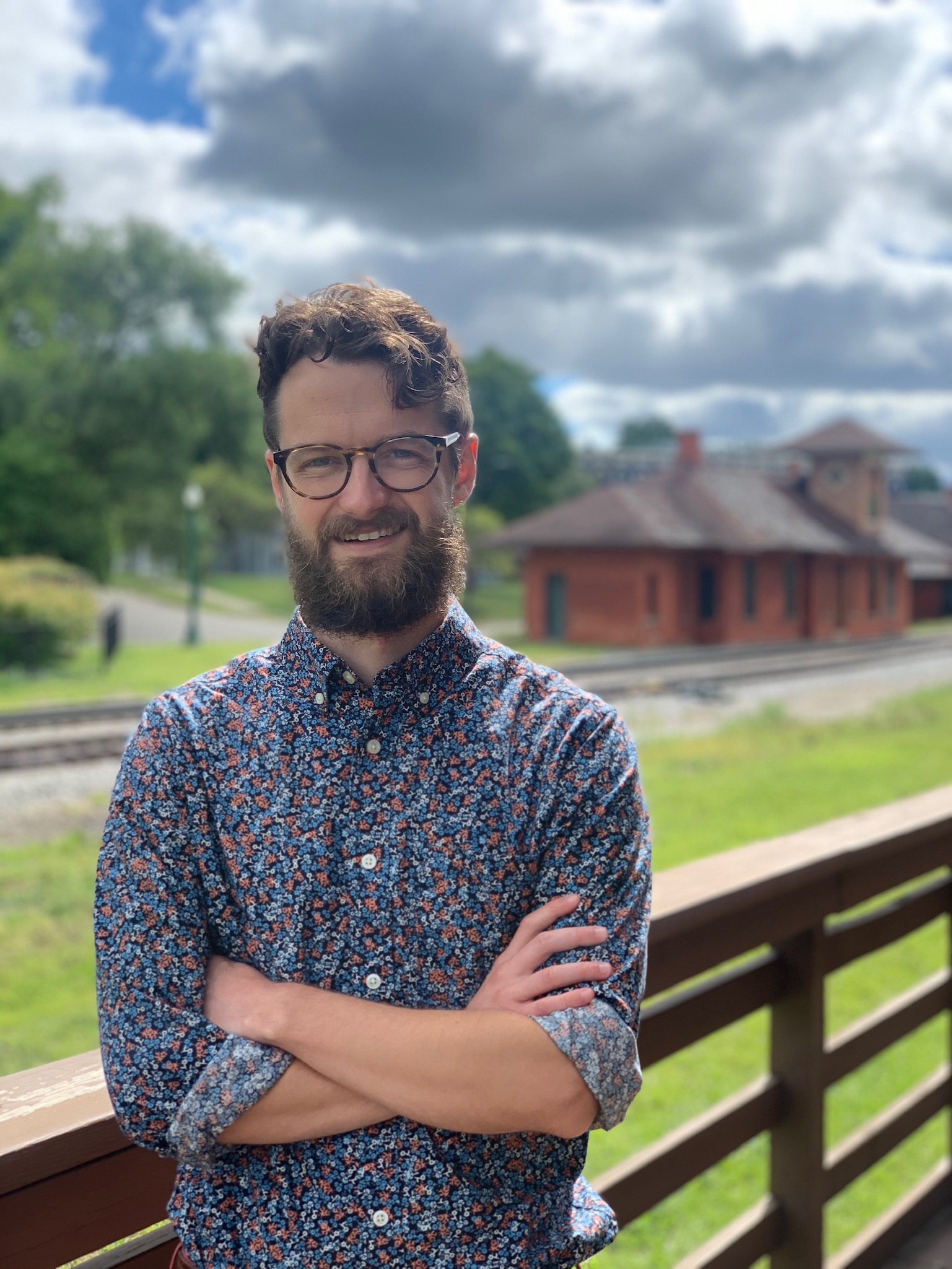About Me
Hi there, I’m Jim. I am a Clinical Social Worker working out of Souteast Michigan and I live in Ypsilanti, MI with my partner. When I’m not working with folks in therapy sessions I spend most of my time hiking or running, cooking (yay homemade pizza!), gardening, reading, and trying to make the people in my life laugh. I completed my undergraduate degree at Michigan State University where I studied psychology and philosophy and I received my Masters of Social Work from the University of Michigan. I have worked within the context of interpersonal practice for ten years and I have formally served as a social worker since 2014.
I originally came to social work through being an advocate within the anti-violence and gender-based violence movements. Within my work I have been lucky enough to fulfill a number of different professional roles where I have had the opportunity to support young people and adults in navigating the impact of traumatic experiences and other challenges. I have served as both a community and university advocate where I provided crisis support, counseling, legal advocacy, and academic assistance to survivors of sexual and gender-based violence. Additionally, I previously managed and implemented a program focused on providing holistic support and life skills development to young folks who have aged out of the foster care system. Most recently, in addition to my private practice, I served as the primary facilitator and program developer of a psychoeducational intervention program at the University of Michigan focused on engaging individuals who had engaged in various forms of sexual violence, which focused on reducing the preventing the perpetration of harm in the future.
I started working as a therapist because I consider it an honor to be allowed the opportunity to support someone in achieving their goals and creating the life they wish to live. My work has typically focused on supporting individuals navigating the effects of trauma, the impact of gender-based violence (ex. Sexual assault, intimate partner violence, stalking) anxiety, depression, grief/mourning, relationship challenges, and gender exploration. The primary approach I utilize within my work is Acceptance and Commitment Therapy (ACT) which utilizes mindfulness practices, out of session work, the creation of emotional space, values exploration, and other techniques to support the individual needs of each client. I was drawn to ACT because it allows for fluid, flexible engagement within sessions while also empowering clients to enact tangible change in their lives. In addition to ACT I utilize motivational interviewing, strength-based engagement, social-context theory, and trauma-informed practices.
My Approach
Therapy, at its core, must be a partnership between the individual and the therapist they have chosen to work with. Trust, honesty, intentionality, the respecting of boundaries, and being sincerely committed to promoting the wellness of my clients are essential ingredients in creating meaningful therapeutic partnerships. As a therapist, I do not seek to tell people what to do or give them advice they did not ask for. My role is to sit with and support individuals when they experience pain. Lift up and celebrate clients in their victories. And work side-by-side with my clients in wading through the day-to-day challenges and complexities of living, with the goal of supporting them in creating an authentic and meaningful life.
Therapy is not about “fixing” people or “curing” everything. Therapy is about engaging humans in all their beautiful complexities; so therapy can be challenging, exciting, confusing, awkward, hopeful, invigorating, and a multitude of other experiences. It is my goal to create a therapeutic space that supports healing, resolution, and where folks can practice skills that they can use in their everyday life.
What else am I about? I am an LGBTQQIA+ affirming therapist and I strive to be an anti-racist human in my day-to-day life. As a social worker I believe I have a responsibility to support individuals while also advocating for institutional and societal change more broadly. Therapy must acknowledge and address the reality that oppressive forces permeate every facet of society and these factors impact the wellness and mental health of individuals. The impacts of marginalization and discrimination are a reflection of society, not the individual who is experiencing the harm. As Jiddu Krishnamurti said, “It is no measure of health to be well adjusted to a profoundly sick society.”
